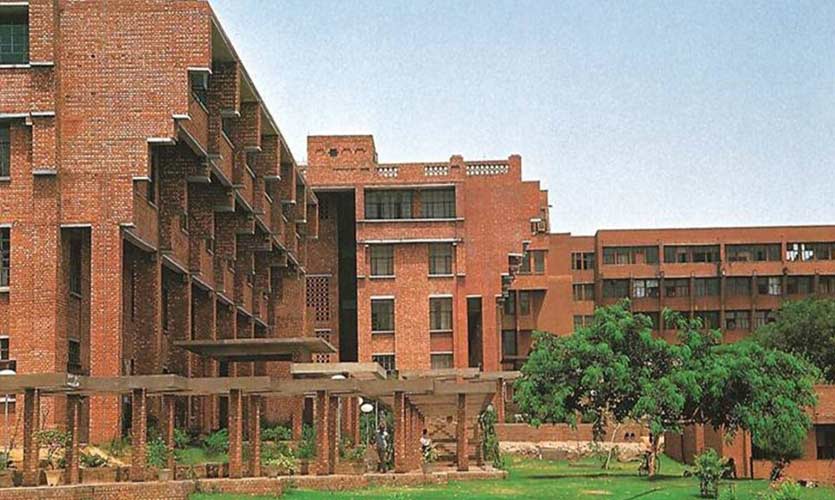Jawaharlal Nehru University (JNU) has yet again sparked controversy; this time for introducing a new optional course which allegedly describes “jihadi terrorism” as the only form of “fundamentalist-religious terrorism” and the communist rule in the erstwhile Soviet Union and China as the “predominant state-sponsors of terrorism” that influenced “radical Islamic states”. The new course titled ‘Counter Terrorism, Asymmetric Conflicts and Strategies for Cooperation among Major Powers’ was cleared at the Academic Council of the University on August 17, 2021. The course can be opted by engineering students pursuing a dual degree program i.e., MS with specialisation in International Relations, after a B. Tech in Engineering.
The introduction of the course has erupted much controversy, with many from the Opposition and part of the academia opposing the inclusion of the course material. A section of the JNU students and teachers have also objected to the course. According to an Indian Express report, the JNU Teachers’ Association has alleged that they were not allowed to be a part of the discussion at the meeting during the clearing of the course. The university’s Academic Council, which gave nod to the course, is their highest decision-making body for academic programs, and their clearance must be endorsed by the Executive Council.
The Vice-Chancellor of JNU, Mamidala Jagadesh Kumar stated that the objection on the new course is creating “needless controversy”, “without going into its academic merits”. In a statement released on September 1, Kumar mentioned, “During the past few days, there was a needless controversy created about the first course without going into its academic merits. The objective of the course ‘Counter Terrorism, Asymmetric Conflicts and Strategies for Cooperation among Major Powers’ is mainly to have an in-depth understanding on the challenges emanating from terrorism to India’s national security and how India can get equipped with adequate responses in case of any eventuality.”
The statement further read, “The way things have ‘unfolded in India’s neighborhood are proving highly detrimental to India’s national security. It is imperative that an academic institution like JNU takes the lead and builds a good set of counter terrorism specialists. India urgently needs a critical mass of such specialists in this field.”
Binoy Viswam, a Rajya Sabha MP belonging to the Communist Party of India (CPI), has criticised the new course and alleged that it will “communalise and politicise geopolitical issues”. In a letter to the Minister of Education, Dharmendra Pradhan, Viswam wrote, “I write this letter to put forth my strong objection regarding the prejudiced and inaccurate nature of material being included in a course titled ‘Counter Terrorism, Asymmetric Conflicts and Strategies for Cooperation among Major Powers’ by the Jawaharlal Nehru University (JNU) as part of the newly introduced Engineering Programme. It is deeply unfortunate that higher education is being used as a platform to communalise and politicise geo-political issues through the presentation of half-truths and academically dishonest information.”
The two most controversial modules included in the new counter-terrorism course of JNU are ‘Fundamentalist-religious Terrorism and its Impact’ and ‘State-sponsored Terrorism: It’s Influence and Impact’. The first module mentions, “Fundamentalist-religious inspired terrorism has played a very critical and dominant role in the spawning of terrorist violence in the beginning of the 21st century. The perverse interpretation of the Koran has resulted in the rapid proliferation of a jihadi cultist violence that glorifies death by terror in suicidal and homicidal variants.”
It continues, “The exploitation of the cyberspace by the radical Islamic religious clerics has resulted in the electronic propagation of jihadi terrorism world over. Online electronic dissemination of Jihadi terrorism has resulted in the spurt of violence in non-Islamic societies that are secular and are now increasingly vulnerable to the violence that [is] on the increase.”
On the other hand, the module titled ‘State-sponsored Terrorism: It’s Influence and Impact’ refers only to the Soviet Union and China, and states, “Terrorism has always a geographical base and support havens for its operations. State sponsored terrorism has been largely during the ideological war between the West and the Soviet Union and China. The Soviet Union and China have been predominant state-sponsors of terrorism and they have been heavily involved in terms of their intelligence agencies training, aiding and providing logistical support to Communist ultras and terrorists. In the post-Cold War period, the trend has been well adapted by several radical Islamic states that have mirrored the earlier tactical strategies of the Communist powers and have continued to aid and arm the various terrorist groups.”
Read more: Centre Backs IT Rules, Says Will Prevent Misuse Of Freedom Of The Press
Binoy Viswam, in his letter to the education Mmnister, strongly criticised the course modules and wrote, “The statements in this counter-terrorism module include assertions such as “jihadi terrorism” being the only form of “fundamentalist-religious terrorism” and Communist regimes of the Soviet Union and China as the “predominant state-sponsors of terrorism” that influenced “radical Islamic states”. These statements are not only historically inaccurate they are also deeply prejudiced and politically motivated.”
Apart from this, the JNU Academic Council has approved two more courses for inclusion in its curriculum – ‘India’s Emerging World View in the 21st Century’ and ‘Significance of Science and Technology in International Relations’.










